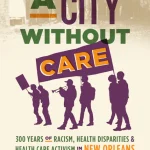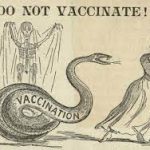Holly M. Karibo is Associate Professor of History and Director of Graduate Studies at Oklahoma State University. This interview is based on her new book, Rehab on the Range: A History of Addiction and Incarceration in the American West (University […]
history of medicine
The Author’s Corner with Rachel Louise Moran
Rachel Louise Moran is Associate Professor of History at the University of North Texas. This interview is based on her new book, Blue: A History of Postpartum Depression in America (University of Chicago Press, 2024). JF: What led you to […]
The Author’s Corner with Sarah Naramore
Sarah Naramore is Assistant Professor of History at Northwest Missouri State University. This interview is based on her new book, Benjamin Rush, Civic Health, and Human Illness in the Early American Republic (University of Rochester Press, 2023). JF: What led […]
The Author’s Corner with Kevin McQueeney
Kevin McQueeney is Assistant Professor of History at Nicholls State University. This interview is based on his new book, A City without Care: 300 Years of Racism, Health Disparities, and Health Care Activism in New Orleans (University of North Carolina […]
Episode 107: “The Politics of Smallpox in Revolutionary America”
The American Revolution happened in the midst of a smallpox epidemic. In one of the timeliest history books of the publishing season, historian Andrew Wehrman visits the podcast to talk about what the patriots of the American Revolution and the […]
The Author’s Corner with Susan Brandt
Susan Brandt is a lecturer in history at the University of Colorado, Colorado Springs. This interview is based on her new book, Women Healers: Gender, Authority, and Medicine in Early Philadelphia (University of Pennsylvania Press, 2022). JF: What led you […]
COVID-19 vaccines and and the history religious exemptions
Last November I joined Michelle Mello of Stanford University Law School in a conversation on religious exemptions and vaccines. The Council on Foreign Relations sponsored the event. You can watch it here:
The Author’s Corner with Peter Swenson
Peter Swenson is Charlotte Marion Saden Professor of Political Science and Professor in the Institution for Social and Policy Studies at Yale University. This interview is based on his new book, Disorder: A History of Reform, Reaction, and Money in […]
Vaccination mandates have a long history. Backlash to vaccination mandates have a long history.
Good to see Andrew Wehrman cited in Maggie Astor’s New York Times piece. A taste: Professor Wehrman this week tweeted an example of what, in an interview, he said was a “ubiquitous” phenomenon: The health board in Urbana, Ohio, Jordan’s hometown, enacted […]
The long history of medical misinformation
Historian Nicole Hemmer writes, “the deliberate spread of demonstrably untrue claims for politics or profit has been a feature of life in the US throughout the nation’s history. From patent medicine to fluoride conspiracies to false claims about the health […]









